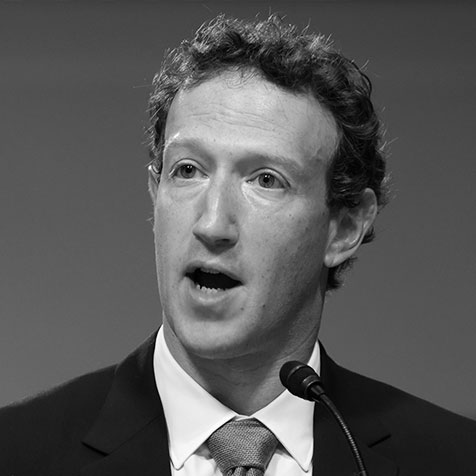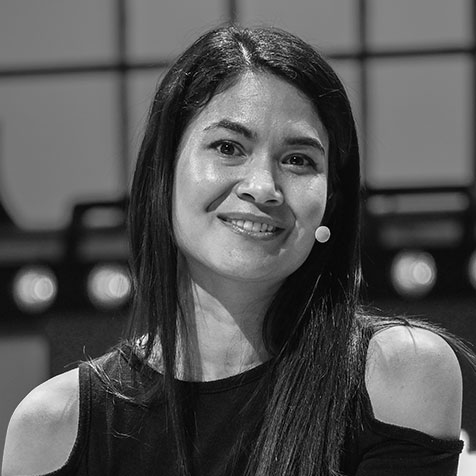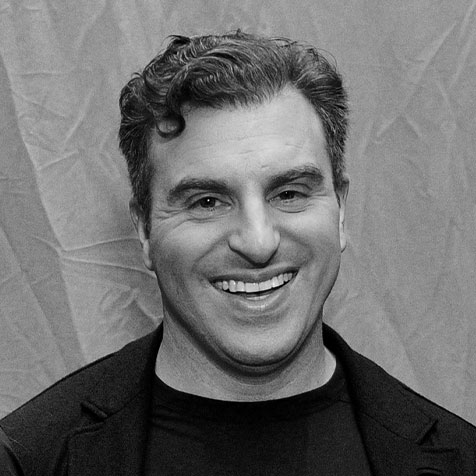Loading component...
At a glance
- Today, Millennials make up most of the global workforce and have begun stepping into leadership roles.
- Millennials are thought to be tech savvy, socially conscious, highly educated and non-hierarchical.
- Such qualities can bolster millennials' leadership outlook, but there are also risks to consider.
Few generations of employees have been more maligned than the millennials. The cohort, born between 1980 and 1994, has long been regarded as the “job hopping” generation.
The focus of countless headlines and office jokes since they hit the workforce in the late 1990s, millennials have often been stereotyped as fickle, self-focused, entitled and eager for recognition.
While much has been written about how to manage millennials, little is known about their own approach to leadership. That looks set to change, however, with millennials now entering their 40s and increasingly stepping into positions of power and responsibility.
Data from the World Economic Forum shows there are 1.8 billion millennials around the world, which is equal to 23 per cent of the global population. They also represent most of the global workforce. Over the next decade, our C-suites and boardrooms are set to become millennial territory.
What makes them tick?
Millennials have faced condescending assumptions since they first joined the workforce, but there is much to know about the generation and the factors that influence their career outlook.
Social researcher and demographer Mark McCrindle, founder of McCrindle Research, describes the millennial generation as tech savvy, socially conscious, highly educated and non-hierarchical.
“It is the generation that saw the first iteration of the digital revolution, being the internet,” he says. “Then they were pretty of devices and social media, so they are certainly the most digitally savvy generation to have entered the leadership ranks.”
Millennials grew up in a time where the importance of diversity and inclusion was increasing, and McCrindle says this stuck with them as they entered the workforce.
He notes that they also entered tertiary studies in record numbers.
"With more millennials in leadership roles, I believe we’ll see a workforce of more empowered people, where there is less of the command-and-control approach. Millennial leaders will encourage their teams to play to their own strengths by asking great questions and not necessarily feeling like they need to know everything."
“They are more likely to have a university degree than any prior generation, and they saw the paradigm change with more women graduating from university than men in their time as well,” he says.
Workplace expert Michelle Gibbings says millennials are generally confident and tolerant, and they value much more than a paycheck.
“They are looking for that sense of connection and want to work for organisations that have strong values and purpose,” she says. “They are far more willing to challenge the status quo, but also challenge hierarchy.
“They generally want flexibility in the work they do,” Gibbings adds. “At one stage, they were criticised for being less loyal than previous generations in the workforce, but what they are really interested in is work that has meaning and value, and where they are continuing to learn and develop. If they aren’t going to get that, they will be ready to leave.”
CFO's secret to success in a creative business environment
Leadership outlook
How will these characteristics and experiences influence the leadership style of this generation?
McCrindle expects millennial leaders to value collaboration and to take a global outlook.
“The fact that they do not respond well to autocratic structures, and that they do not want hierarchies or a chain of command, is a pretty adaptive and helpful leadership outlook,” he says.
“This generation helped adapt leadership and organisational structures for these times. It’s a flatter structure in a workplace.
There’s more participation in collaboration and certainly leadership styles these days are more collaborative and welcome participation. That speaks the language of this generation. That is just the world they’ve ushered in.”
Millennials may also drive greater action on environmental issues when they reach the C-suite, with research from Deloitte showing 46 per cent of the generation is already pressuring businesses to act on climate change.
McCrindle adds that millennials will also be likely to lead with a social conscience.
“This is the original generation of the virtuous consumer that began reading labels and valuing things like fair trade and looking at the provenance and the materials in items,” he says.
“They’ve been very much promoting small business and family business, and connecting locally, so their sense of work and commerce is about community building and bringing about local economic development,” McCrindle adds.
“They bring that same approach to the leadership ranks.”
Sharpening Your Business Acumen
Coach over commander

When it comes to their own management preferences, millennials tend to value a coach over a commander. Leadership specialist Charlotte Blair says this means they are likely to excel at coaching their own teams.
“With more millennials in leadership roles, I believe we’ll see a workforce of more empowered people, where there is less of the command-and-control approach,” she says.
“Millennial leaders will encourage their teams to play to their own strengths by asking great questions and not necessarily feeling like they need to know everything.”
This is the leadership approach favoured by Nipuna Welmillage CPA, transformation about 19 people and believes in empowering his team by removing the roadblocks that can slow them down.
“I like to get the most out of my people by giving them some guardrails in which to operate, but then letting them loose to do their work, because I think that is the best way to get the most out of them,” he says.
“We live in a very dynamic environment, and it’s very dangerous for leaders to think that we know exactly how the organisation will operate day-in and day-out for the next five years,” Welmillage adds. “As a leader, I certainly don’t pretend that I know everything.”
"In the workplace, millennials are sandwiched between Baby Boomers and Gen X at one end and Gen Z at the other. I think that gives us a big advantage because we are used to working with different generations."
For Aalia Narula CPA, a millennial and senior finance business partner at Downer, flexibility is an essential leadership quality.
Narula has one direct report, but the company’s whole transactional team is indirectly accountable to her. She says she is more interested in her team’s output than the hours they work.
“I am all for flexibility when it comes to starting and ending the workday,” she says. “Whether you need to come in early, start late or adjust your hours for family commitments, like picking up the kids, that is perfectly fine with me.
“The key here is communication,” Narula adds. “Letting everyone know your schedule and any changes helps the team stay on track. If you’ve got tasks to finish, just keep us posted on when they’ll be done, whether it’s by the end of the day or next week.
“My main goal is to make sure that, as a team, we can manage our work and our personal lives without stress, so let’s keep those lines of communication open and support each other along the way.”
The secret sauce in Secret Recipe's global success
Risks millennials cannot ignore
Natascha Tjendana CPA, executive manager corporate services at independent charity Youth Projects, believes millennials like herself have an advantage when it comes to leadership.
“In the workplace, millennials are sandwiched between Baby Boomers and Gen X at one end and Gen Z at the other. I think that gives us a big advantage because we are used to working with different generations,” she says.
Tjendana, who leads a team of three, believes her generation has always been driven by a sense of purpose at work, generally understanding that “we need to put the people before the job”.
“I think we understand that when your staff chooses to work for the organisation, it’s because of the purpose, the vision and the values that they feel aligned to. Of course, pay is important, but there are other important factors, like how the organisation plays a role in sustainability.”
While millennials have much in their favour when it comes to leadership potential, there are some qualities that risk hindering their success.
According to Gallup's How Millennials Want to Work and Live report from 2017, millennials’ most common strengths are Achiever, Empathy, Learner, Adaptability and Responsibility. Blair says these traits must be carefully balanced.
“Achiever and Responsibility together can mean they’ve got a high work ethic and do what they say they’re going to do, but this carries a risk of burning out,” she says.
“While millennials might want purpose, they may struggle with creating that balance and not working around the clock,” Blair says.
“While they might be great at coaching their people, if they are working long hours themselves, are they creating a culture where everybody else is expected to work long hours as well? Will they be setting the bar too high for other people?
We can’t tar everyone with the same brush, but I think finding the balance is something to watch out for.”
McCrindle adds that while millennials have been shaped in a world of flatter structures and more empowered individuals, structures still matter in the workplace.
“In fact, society operates around boundaries and guidelines, and rules and accountability, so that is one aspect for millennials to consider as they step into leadership and the responsibility that comes with it.”
McCrindle notes that while millennials value empathy, connection and collaboration, they will also need to deliver results.
“Productivity, output, efficiency, business acumen, technical skills matters as much as people skills, so they are going to have to get results,” he says. “Bringing the best of both worlds will be key for their leadership success.”
For Welmillage, leadership is about driving positive outcomes, regardless of your generation.
“That is why I’m in this transformational leadership role – because of that need to make a difference, to move our company in the right direction, to help our people internally, as well as our customers and, obviously, our bottom line,” he says.
“That is where I’m heading in my career. I'll see what each opportunity gives me, and I’ll go from there.”
My Firm. My Future. Shaping the culture you want
Millennials in charge
Some of the world’s most recognisable and financially successful organisations are led by millennials.

Mark Zuckerberg
Co-founder and CEO, Meta Platforms
The poster child for millennial entrepreneurs, Zuckerberg started Facebook in 2004 at the age of 19 and took the company public in 2013.
Facebook's holding company changed its name to Meta Platforms in 2021. The company has a market cap of US$1.27 trillion (A$1.88 trillion).

Melanie Perkins
Co-founder and CEO, Canva
Launched in 2013, web design and publishing platform Canva is an Australian start-up unicorn, valued at $US25.5 billion (A$37.8 billion).
Perkins, aged 37, hails from Perth, Western Australia, and owns 18 per cent of the company.

Anthony Tan
Co-founder and CEO, Grab
Anthony Tan started Southeast Asia’s biggest ride hailing and food delivery firm with Tan Hooi Ling in 2011.
The company is based on an idea for a Harvard Business School venture competition. Grab has a market capitalisation of US$12.63 billion (A$18.71 billion).

Brian Chesky
Co-founder and CEO, Airbnb
With Airbnb, Chesky has helped to change the way we travel – or at least where we stay while we are away.
The company has a market cap of US$106.31 billion (A$157.52 billion).

Daniel Ek
Co-founder and CEO, Spotify
Founded in Stockholm, the music streaming service Spotify was launched in 2008 and has a market cap of US$51.18 billion (A$75.83 billion).

